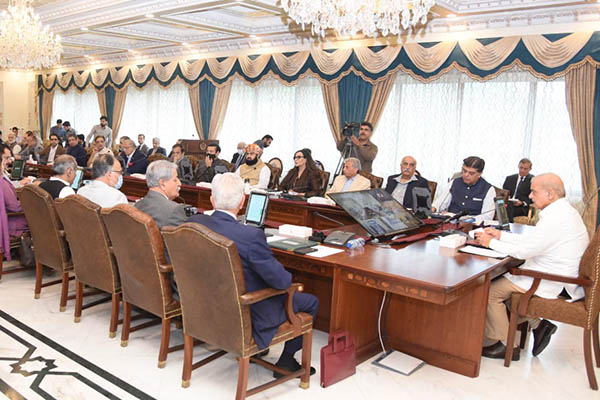
P.M. Sharif chairs meeting of the federal cabinet on June 22, 2022. Photo courtesy PID
Prime Minister Shehbaz Sharif on Tuesday stressed that the incumbent government is prepared for further “difficult” decisions—if necessary—to steer Pakistan out of a prevailing economic crisis, adding that he hoped the country’s elite will support efforts to achieve stability.
Addressing journalists after a weekly meeting of the federal cabinet, he said that the government would not hesitate to take steps that would strengthen the national economy. Reiterating claims of the ousted Pakistan Tehreek-e-Insaf (PTI)-led government’s poor governance provoking the crisis, he added: “The previous government reduced the price of petrol and laid a trap for the next government.” Maintaining that the situation would have been better if the PTI had not violated its agreement with the IMF and reduced fuel prices, he regretted that economic conditions globally were worsening due to a rise in commodity prices.
The government’s plan, he said, was to place greater burden on the rich to reduce the impact of rampant inflation on the impoverished. “We will tax affluent citizens so that the poor are reassured the government is providing them with relief while going after those who can afford it,” he said, adding that the elite must demonstrate willingness to “sacrifice” in the national interest.
According to local media, the cabinet decided that the prime minister would take the nation into confidence after the revival of the International Monetary Fund (IMF)’s program had been finalized. During the cabinet meeting, per sources, Finance Minister Miftah Ismail clarified that the withdrawal of subsidies on fuel prices was not linked to the demands of the IMF, but rather a surge in global prices of the commodity. He stressed that in this scenario, the government could not afford to continue subsidizing fuel.
